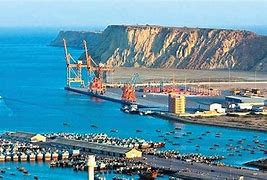The foreign ministers of China and five Central Asian nations recently convened in Chinese city Chengdu for important discussions ahead of the 2nd China-Central Asia Summit, making it a big step forward in eexpanding regional cooperation and deepening strategic partnerships.
The meeting saw representatives from Uzbekistan, Kyrgyzstan, Turkmenistan, Kazakhstan and Tajikistan join their Chinese counterpart Wang Yi to discuss on a wide range of bilateral, regional and global affairs. This diplomatic gathering reflected the growing significance of China-Central Asia ties, underscoring the shared interest in regional economic growth, stability, development and mutual prosperity.
The China-Central Asia Summit, set to take place next year, is expected to be a milestone of the comprehensive efforts to strengthen economic ties, enhance political cooperation, and promote cultural exchange. The Chengdu meeting served as a preparatory session to prepare and finalize key discussions that will guide the upcoming 2nd summit.
The meeting in Chengdu was not only a display of diplomatic harmony and solidarity but also commitment of the mutual desire to elevate cooperation across numerous sectors. In the opening remarks, Chinese foreign minister Wang Yi highlighted that the summit would provide a platform to create a new chapter of collaboration between China and Central Asian nations. He emphasized that the bilateral ties between China and Central Asian countries carry deep historical, cultural, and economic connections that have evolved over centuries.
Wang Yi’s comments were echoed by the visiting foreign ministers, who expressed strong support for expanding the cooperation between China and their respective countries.
The ministers discussed a variety of key affairs ranging from cultural exchanges to infrastructural development and from security cooperation to joint efforts in combating climate change. Central Asia’s importance as a key partner in Belt and Road Initiative (BRI) was also a central theme. The BRI has already significantly contributed to important infrastructure investments in the region, including railways, roads and energy projects that are transforming the economic landscape of Central Asia.
Central Asia’s location has long made it an important partner for China, especially in terms of trade and investments. China has already become the region’s largest trading partner, and the foreign ministers at the Chengdu meeting discussed ways to build on this strong economic foundation. The discussions highlighted the need for closer collaboration in sectors such as agriculture, technology and renewable energy and areas in which China has made noticeable strides and where Central Asia can benefit from its expertise.
With China’s support, Central Asian countries are poised to increase their exports, improve infrastructure, and integrate more deeply into global supply chains. The ministers also discussed about strengthening the connectivity between the two regions, ensuring that services, goods and people can move seamlessly across borders, fostering economic growth for both sides.
The talks also focused on enhancing regional cooperation within the framework of the Shanghai Cooperation Organization (SCO), of which both China and Central Asian nations are active members. The ministers recognised the progress made in promoting regional stability and committed to deepening security cooperation, making it a cornerstone of their future collaboration.
Beyond trade and politics, the foreign ministers recognized the importance of fostering cultural ties and people-to-people exchanges. Education, tourism, and the promotion of cultural understanding were identified as key pillars of the broader partnership. Wang Yi highlighted that the strong historical and cultural bonds between China and Central Asian nations lay the foundation for an enriched relationship.
The meeting saw discussions on increasing scholarships for students, organizing cultural festivals, and facilitating more people-to-people exchanges, which would further solidify the ties between the regions. Central Asia, with its rich history and diverse cultures, offers immense opportunities for mutual learning and engagement. By promoting deeper cultural understanding, China and Central Asia aim to build a more harmonious and inclusive partnership for the future.
The global political landscape is shifting rapidly, with new challenges arising across a range of issues from global health to climate change. The Chengdu meeting reaffirmed that China and Central Asian nations are committed to working together to address these challenges. The foreign ministers discussed the importance of promoting sustainable development, fighting climate change, and strengthening regional collaboration on environmental issues. Joint projects focusing on clean energy, water conservation and ecological restoration were highlighted as areas where the two regions can make good progress.
In addition, the ministers acknowledged the growing significance of multilateral cooperation in tackling global health issues, especially following the pandemic. The shared commitment to improving healthcare infrastructure and ensuring better public health outcomes for their populations was emphasized as a priority for all countries involved.
As preparations continue for the 2nd China-Central Asia Summit, the meeting in Chengdu has set the stage for a productive and forward-looking dialogue. The 2nd summit will provide an opportunity for leaders from China and Central Asia to discuss the progress made in these areas and chart a course for the future.
The writer is a media fellow of China International Press and Communication Centre and can be reached at [email protected]
Related Posts

















